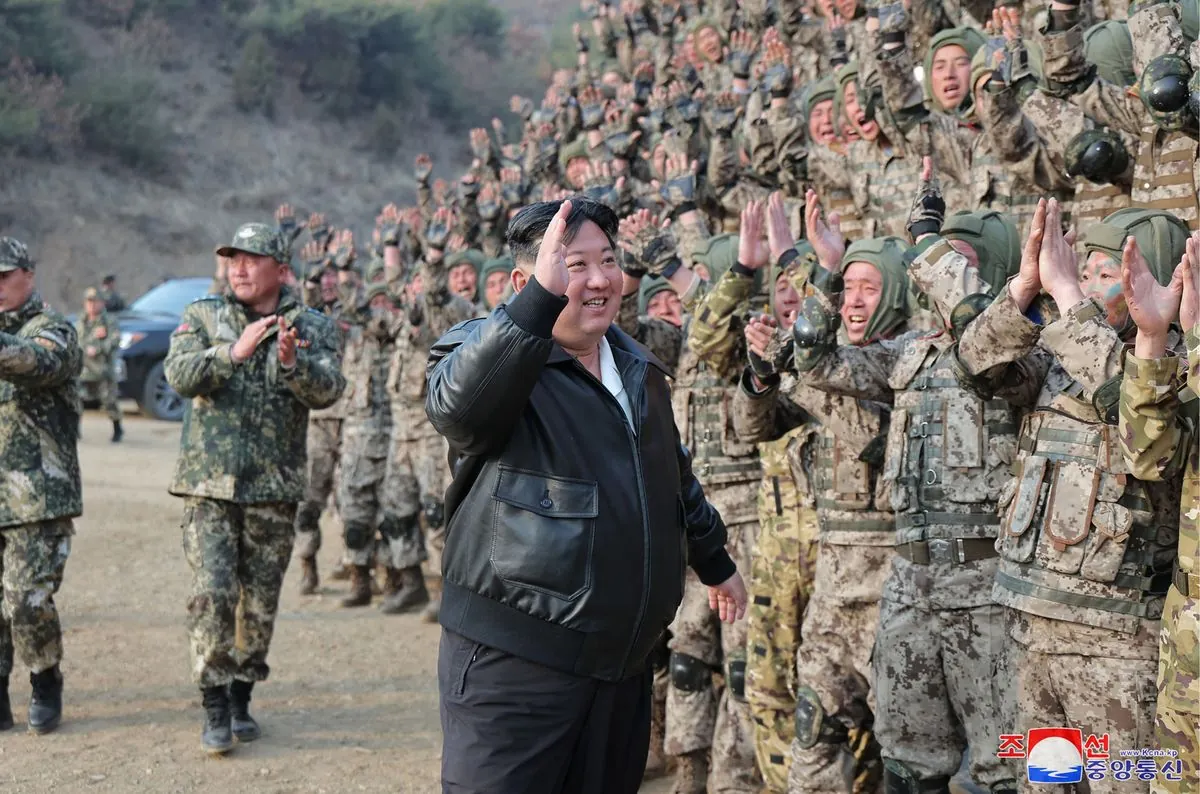Tensions on the Korean Peninsula have reached a critical point as Kim Jong Un, North Korea's leader, issued a stark warning of potential nuclear action against South Korea. This escalation comes amidst a backdrop of heightened animosity between the two nations, which have been divided since 1945 and technically remain at war due to the 1953 armistice that ended the Korean War without a formal peace treaty.
On October 2, 2024, during a visit to a special operations unit, Kim Jong Un declared that North Korea would not hesitate to use "all offensive forces, including nuclear weapons" if South Korea encroaches upon North Korean sovereignty. This threat was made in response to South Korean President Yoon Suk Yeol's Armed Forces Day speech on October 1, where he unveiled South Korea's most powerful ballistic missile and warned of a "resolute and overwhelming response" should North Korea attempt to use nuclear weapons.
The exchange of hostile rhetoric between the two Koreas is not unprecedented, but the current situation is particularly tense due to recent developments. North Korea has been conducting provocative missile tests, while South Korea and the United States have intensified their joint military exercises. This cycle of action and reaction has led to a dangerous escalation in the region.
North Korea's nuclear program, which began in the 1950s with Soviet assistance, has been a source of international concern for decades. The country conducted its first nuclear test in 2006 and has since carried out five more, with the last one in 2017. In 2022, North Korea adopted an escalatory nuclear doctrine, further heightening tensions on the peninsula.
The situation is complicated by the fact that all communication channels and exchange programs between the two countries have been stalled since 2019, when broader U.S.-North Korea diplomacy on denuclearization collapsed. This lack of dialogue makes it challenging to de-escalate tensions through diplomatic means.
"If such a situation comes, the permanent existence of Seoul and the Republic of Korea would be impossible."
Adding to the complexity of the situation, North Korea is expected to make significant constitutional changes in the coming week. The country's rubber-stamp parliament is likely to declare a hostile "two-state" system on the Korean Peninsula, formally rejecting reconciliation with South Korea and codifying new national borders. This move aligns with Kim Jong Un's January 2024 call to eliminate the idea of peaceful unification from North Korea's constitution and cement South Korea as an "invariable principal enemy."
The ongoing dispute over maritime boundaries further complicates matters. Kim Jong Un has reiterated that North Korea does not recognize the Northern Limit Line, a western sea boundary drawn by the U.S.-led UN Command at the end of the Korean War. This line has been a source of naval clashes between the two Koreas in the past.
While the rhetoric from both sides is alarming, many foreign experts believe it's unlikely that North Korea would initiate a nuclear strike, given that its military is outmatched by the combined forces of South Korea and the United States. The U.S. maintains about 28,500 troops in South Korea as a deterrent against North Korean aggression.
South Korea, with a population of about 51 million compared to North Korea's 25 million, has developed into a major global economy known for its technology and cultural exports. In contrast, North Korea's economy remains largely centrally planned and isolated, following a "Juche" ideology of self-reliance.
As tensions continue to rise, the international community watches closely, hoping for a peaceful resolution to this long-standing conflict. The situation underscores the need for renewed diplomatic efforts to address the nuclear issue and work towards stability on the Korean Peninsula.
